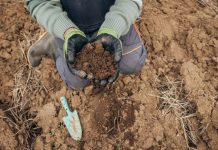Aarthi JanakiRaman, Research Director, Chemicals and Advanced Materials at TechVision, explains the need for an integrated approach to improve adoption of biological control agents for soil and pest management
The United Nations Sustainable Goals, highlight the need for food production to rise exponentially till the year 2050 to meet the ever- rising demands of the growing global population. On the other hand, the world is facing challenges concerning biodiversity loss and greenhouse gas emissions due to the rising burden placed in soil ecosystems while stakeholders strive to address the growing demand for food security.
To mitigate biodiversity losses, there is a push towards sustainable agricultural practices; plant protection practices being one of the key applications. Following this, stakeholders have been testing and are open to gradually replace synthetically derived plant protection chemicals with biocontrol (biological control) agents (BCA).
Utilizing biological control agents Biological control broadly refers to use of any biological agent that can help in crop, disease and pest management. It is an environmentally safer alternative and sustainable in nature. While the concept of biological control itself is not new and was integral in traditional agrian practices, its use in commercial scale is being revived, mainly due to concerns regarding soil degradation and sustainability. Increasing focus towards biological methods can improve commercial adoption, making it economically viable and further continued research and commercial adoption.
Biological control agents are proven to be advantageous as they can target a specific group of disease-causing pathogens, which can minimize potential adverse effects in the soil ecosystem as in the case of some broad-spectrum pesticides, have a more sustained effect on soil without additional intervention and can work with other biological aids without creating adverse effects. It can also help in conservation of host immune responses so that plants can channelize the energy towards desired traits.
However, for effective utilization of biocontrol agents, it is important to understand the relationships of various BCA to provide a holistic and effective crop and soil protection strategy. Also, as the efficiency of BCA is dependent on various biotic and abiotic factors and hence, overall understanding of the inter relationships of the entire soil ecosystem and plant growth is needed to derive the maximum potential from biological control agents.
Many BCAs used currently to improve plant immunity or as an aid to combat disease and infestation and research studies are underway to develop BCA that can provide long term benefits taking into account the adaptation of pathogens to them. Focus is also on evaluating and fine tuning the mechanism of action and functionalities to increase their adoption across geographies and plant varieties. A key requirement to optimize its potential is to integrate its use with other plant and soil protection agents, making it a part of integrated soil and pest management approaches.
Genetic engineering and design to increase BCA effectiveness
Using BCA along with other technologies can not only improve commercial adoption, but also help in developing more effective agents. At present, biocontrol methods are being used along with chemical methods to achieve longer lasting effects. However, combining them with other tools and technologies can help in achieving better value. Genetic engineering and design, digital and analytical methods and forecasting tools are some of the technologies that can be integrated with BCA to increase effectiveness.
For example, modeling and simulation tools for plant phenotyping and genotyping can help in developing targeted BCA formulations that are active over longer period of times, help to overcome potential resistance and develop aids that are active under various environmental conditions. Use of modeling tools and genetic tools can also help in developing BCA that can be effective in various environmental conditions and reduce the dependence in chemical agents and encourage a shift towards independent of biological soil and pest management practices.
As BCA take a longer period of time to attach itself to the plant’s rhizome when compared to chemical agents, disease forecasting tools and models to analyze and predict pathogen incidence can help in devising a schedule for application to obtain maximum benefits over extended periods of time. Geographical models can provide an accurate assessment of ecological impact and also devise strategies to prevent invasion of foreign species and preserve the natural ecosystem.
Integrated soil and pest management
The goal for an integrated soil and pest management is to leverage various biological control agents such as biofertilizers, microbial cocktails (including bacterial, phages, algae etc.) that can act as plant growth promoters and soil nourishing agents ably supported by microbial and genetic engineering techniques and digital tools.
Numerous lab-based efficacy trials have established the effectiveness of such combinational approaches. More experimental field trials involving the farmers and getting real time validation in terms of boost in productivity and yield, combating plant diseases and improving soil health can increase technology availability and commercial adoption.
Rising focus on sustainable practices methods are leading to interest in the use of biological control methods for improving and maintaining soil health and pest management. Continued access to funding for boost research activities, involving stakeholders from various technology areas, conducting field trials can not only provide wider product choices but also position biological control methods as a choice for intervention and mitigation strategies by the agricultural communities.
Contributor Profile
Editor's Recommended Articles
-
Must Read >> Agriculture and crops: A focus on wheat cultivation















